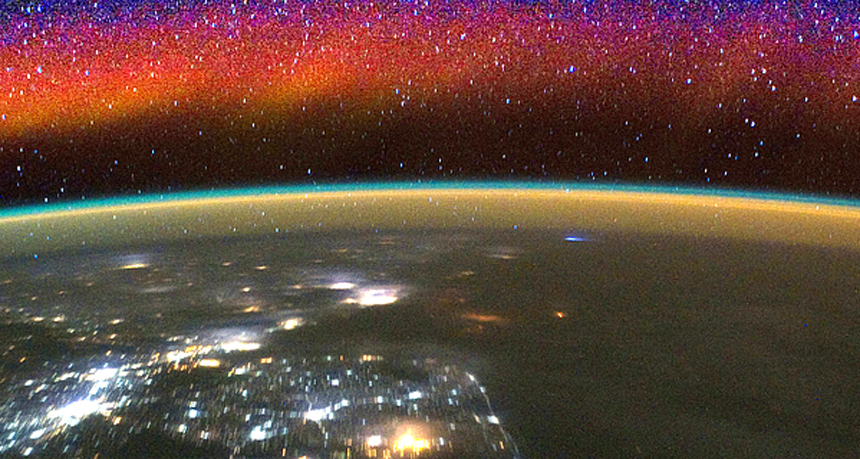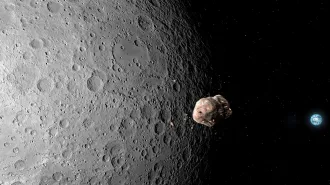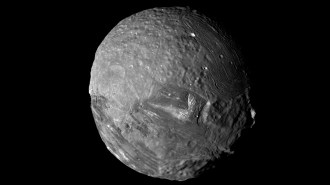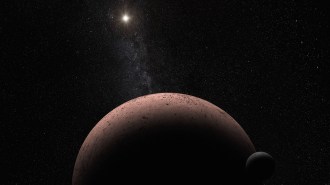NASA is headed to Earth’s outermost edge
GOLD mission will study how space and Earth storms affect the ionosphere

GLOWING HALO The colorful bands above Earth’s surface, known as airglow, form when cosmic and solar rays interact with different gases in the upper atmosphere and emit light. Two upcoming NASA missions will study airglow and other properties of the ionosphere.
NASA







